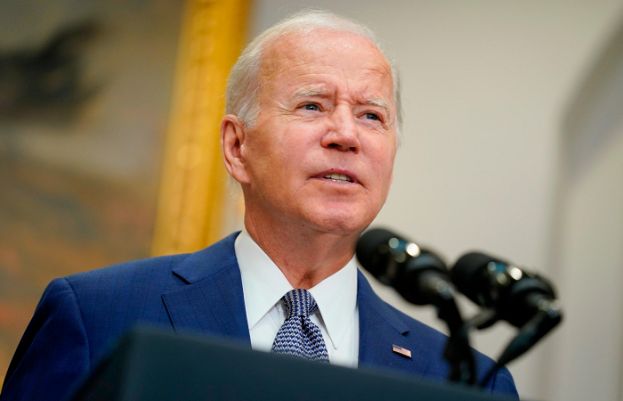“And what I think is maybe one of the most dangerous nations in the world: Pakistan. Nuclear weapons without any cohesion”.
US President, Joe Biden, shocked Pakistan with a statement none of his predecessors had uttered publicly; one of the most dangerous nations in the world that possesses “nuclear weapons without any cohesion”, Biden said.
Biden uttered these words while addressing a Democratic Congressional Campaign Committee Reception at his Private Residence in Los Angeles, California on October 13. It was no less than a thunderbolt for most Pakistanis. In a single breath, Biden clubbed Pakistan with Russia and China as a collective threat that required unison of thought and action by the United States.
Here are the excerpts from the transcript of the speech that relates to the three countries and explains the extent of the US administration’s intent to sternly deal with anything linked to China and Russia.
” It’s a different world. A totally different world right now…..Did any of you ever think you’d have a Russian leader, since the Cuban Missile Crisis, threatening the use of tactical nuclear weapons that would — could only kill three, four thousand people and be limited to make a point? Did anybody think we’d be in a situation where China is trying to figure out its role relative to Russia and relative to India and relative to Pakistan?
I’ve spent more time with Xi Jinping than any person in — any head of state in America — in the world. I spent over — they keep count of it — 78 hours’ worth. Of that, 68 were in person, over the last 10 years, because Barack knew that he couldn’t be dealing with a Vice President. And so, he assigned me. I’ve traveled 17,000 miles with him.
This is a guy who understands what he wants but has an enormous, enormous array of problems. How do we handle that? How do we handle that relative to what’s going on in Russia? And what I think is maybe one of the most dangerous nations in the world: Pakistan. Nuclear weapons without any cohesion.
So, folks, there’s a lot going on. A lot going on. But there are also enormous opportunities for the United States to change the dynamic in the second quarter of the 21st century.
This is the United States of America. Whatever we’ve set our mind to in our history, we have gotten it done when we’ve done it together. So, please — please, please keep a Democratic House of Representatives. We’ll get it done”.
It would be immature to consider Biden’s characterization of Pakistan as an off-the-cuff remark. His aides possibly drilled into his mind the image of a country with questionable cohesion, capability, and the response of a country that remains politically embattled and polarized.
Does this imply Pakistan is in for a test of an existential nature i.e alignment with the “community of democracies” led by the United States or the “nexus of dictatorships” led by China? Will the nuclear-armed nation be able to disprove Biden’s assertion of “nuclear weapons with no cohesion?”
Islamabad has responded resolutely, reassuring the world of the fool-proof safety of its nuclear weapons but whether this reassurance will a) satisfy the US and the western apprehensions and b) rub off the stigma of “one of the most dangerous nations or does Biden’s statement stem from the usual geopolitical posturing? Does this reflect the US establishment’s calculated policy of systematically neutralizing nations that have traditionally stood with Beijing on critical global issues and also benefited economically from this relationship?
The differentiation between democracies and dictatorships also raises certain questions if one looks at the military missions the US-led democracies have initiated or led in the last thirty years starting with the intervention in the Iraq-Kuwait conflict, the Balkan states, Afghanistan, Iraq, Syria, and Libya i.a.
China, on the other hand, has expanded its footprints only through economic incentives; financial assistance, and infrastructure development loans. Not a single Chinese soldier on any foreign soil despite being a “non-democratic” country nor any invasion of another land.
Western governments’ silence over the annexation of Kashmir in August 2019 and the incessant violations of the rights of non-Hindu minorities in India have hardly dented or discouraged India’s growing incorporation into geopolitical alliances such as NATO, QUAD, AUKUS – all boasting themselves to be democracies.
Does it matter for a developing country whether the aid-giving country is a democracy or a dictatorship? Why should it take sides as long as a partnership with another country yields economic dividends for its people?
In this increasingly geopolitically divided world, the deployment of notions such as human rights and democracy, it seems, is more a political tool than a real concern for values. Otherwise, Saudi Arabia, India, and Turkey wouldn’t be members of the G20. Nor would the Palestinians or Muslims and Christians in India suffer at the hands of their rulers.




